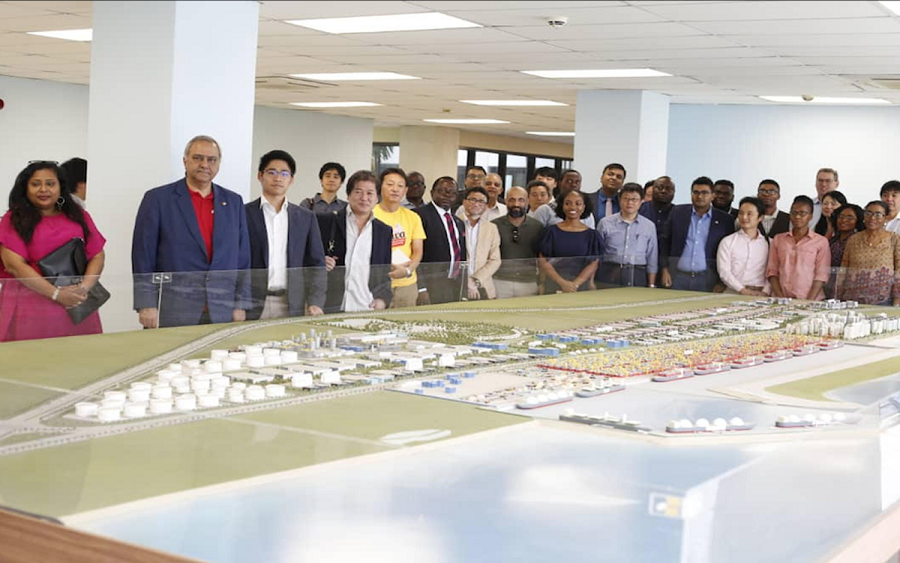The Lagos Free Zone has been endorsed by some Japanese firms, who described it as investors’ delight. This was disclosed when the firms were hosted in a facility tour by the management of the zone, which is regarded as the gateway to a new frontier.
The tour was organized by the Japan-Nigeria Business Facilitation Council in collaboration with the Lagos Secretariat-Japan External Trade Organization (JETRO).

The Lagos Free Zone is located at the Ibeju-Lekki axis, one of the fastest-growing Local Government Areas (LGAs) in Lagos State termed ‘’The New Lagos’’.
The Trade Commissioner and Managing Director of JETRO in Lagos, Mr. Shigeyo Nishizawa said, ‘’Since the time I held a meeting with Japanese companies’ MDs in December, I found that the MDs were interested in the Lagos Free Zone, hence I decided to hold a site visit. Over 40 officials visited the site.
“The participants included vehicle manufacturers, medical equipment manufacturers, food manufacturers, home appliances manufacturers, overseas traders and Government agencies.
‘’We were pleased to have been received by Mr Haresh Aswani, MD of Tolaram Group and Mr Dinesh Rathi, CEO of LTZ. We checked the site and Lekki deep seaport construction progress and understood that the LFZ will be a real game-changer of the Nigerian Economy.”
[READ MORE: Italy to invest in Nigeria’s agric sector)
The Trade Commissioner said that the Lagos Free Zone, which would aid the ease of doing business and have the Lekki Deep Sea Port in it, is expected to contribute about 3% to the national GDP by 2025. The deep seaport will start operations by the second quarter of 2022.
The Lagos Free Zone is promoted by the Singapore-based firm, Tolaram Group. It will also serve as a Logistics hub for West Africa and have a real estate cluster, thereby creating a complete live-work-play environment.
The Zone, when fully developed, will accommodate over 150 industries in different sectors of the economy, ranging from Fast Moving Consumer Goods (FMCG) to Engineering and Pharmaceuticals, thereby attracting billions of dollars in foreign direct investments to Nigeria.
The facilities in the free zone include an operational truck pack, emergency response medical facility and a central processing centre, which hosts agencies like the Nigeria Export Processing Zones Authority, Nigeria Customs Service and Nigeria Immigration Service.
















